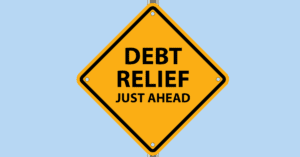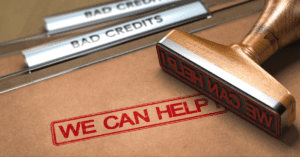Silence the Ring
Are you tired of the relentless ringing of your phone, signaling yet another collection call? You’re not alone. As a licensed insolvency trustee, I’ve helped countless Canadians turn those stressful calls into a thing of the past. This article isn’t just about understanding collection calls; it’s your first step towards financial freedom. Let’s dive into how you can navigate and overcome the challenges of debt in Canada.
Understanding Collection Calls
What Are Collection Calls and Why Do They Happen?
Collection calls are attempts by creditors or collection agencies to recover debts you owe. In Canada, these calls are a common practice, but many people don’t fully understand why they happen. Typically, these calls start after you’ve missed several payments, signaling to creditors that you might be at risk of defaulting on your debt.
The Legal Landscape of Collection Calls in Canada
In Canada, the law sets clear boundaries on what collection agencies can and cannot do. For instance, there are restrictions on call times, call frequency, and the language that can be used during these calls. Knowing these laws can empower you to handle collection calls more confidently.
Your Rights and Responsibilities
Knowing Your Rights During Collection Calls
You have rights during collection calls, including the right to privacy and the right to be free from harassment. Understanding these rights can help you navigate these calls more effectively.
Your Responsibilities
While you have rights, you also have responsibilities, such as providing accurate information to collectors and responding to legitimate debts. Ignoring these calls can lead to more significant issues, including legal action.
The Impact of Collection Calls on Your Life
Emotional and Psychological Effects
Constant collection calls can be incredibly stressful, leading to anxiety and impacting your mental health. This stress can spill over into your personal and professional life, affecting relationships and job performance.
Real-Life Examples
Many clients have shared stories of how collection calls disrupted their lives. With the right guidance, they were able to turn their situations around and stop the calls.
Debt Relief Options in Canada
Overview of Debt Relief Options
In Canada, you have several options for debt relief, including debt consolidation, consumer proposals, and bankruptcy. Each option has its pros and cons, and the right choice depends on your specific situation.
Consumer Proposals: A Closer Look
A consumer proposal is a legally binding process where you agree to pay a portion of your debts over a set period. It’s an effective way to stop collection calls and can be a preferable alternative to bankruptcy for many.
Understanding Bankruptcy
Bankruptcy is often seen as a last resort, but it’s not the end of the world. It’s a legal process that provides a fresh start by relieving most of your debts. As a licensed insolvency trustee, I can guide you through this process if it’s the best option for you.
Choosing the Right Debt Relief Strategy
Factors to Consider
When deciding between a consumer proposal and bankruptcy, consider factors like your income, the amount of debt, and your assets. Each situation is unique, and a one-size-fits-all approach doesn’t work.
The Role of a Licensed Insolvency Trustee
As a licensed insolvency trustee, I’m here to help you navigate these choices. I can provide personalized advice based on your financial situation and guide you towards the best solution.
Steps to Take After Receiving Collection Calls
Immediate Actions
First, don’t panic. Assess the situation and gather all relevant financial information. This will help you understand your position better and prepare for the next steps.
Seeking Professional Help
If you’re overwhelmed, seeking professional help is a wise move. A licensed insolvency trustee can provide valuable advice and help you explore your options.
Preventing Future Collection Calls
Managing Finances
Effective financial management is key to avoiding future debt problems. This includes budgeting, saving, and understanding your spending habits.
Building a Healthy Credit Score
Maintaining a good credit score is crucial. Pay your bills on time, keep your credit utilization low, and regularly check your credit report for errors.
Conclusion
Collection calls can be daunting, but they’re not the end of the road. Understanding your rights and options is the first step towards regaining control of your financial situation. Remember, you’re not alone in this journey. As a licensed insolvency trustee, I’m here to help you navigate these challenges and find a path to financial stability.
Call to Action
Ready to say goodbye to collection calls and take control of your finances? Contact me for a consultation, and let’s work together to find the best solution for your situation. Remember, the path to financial freedom starts with a single step.




